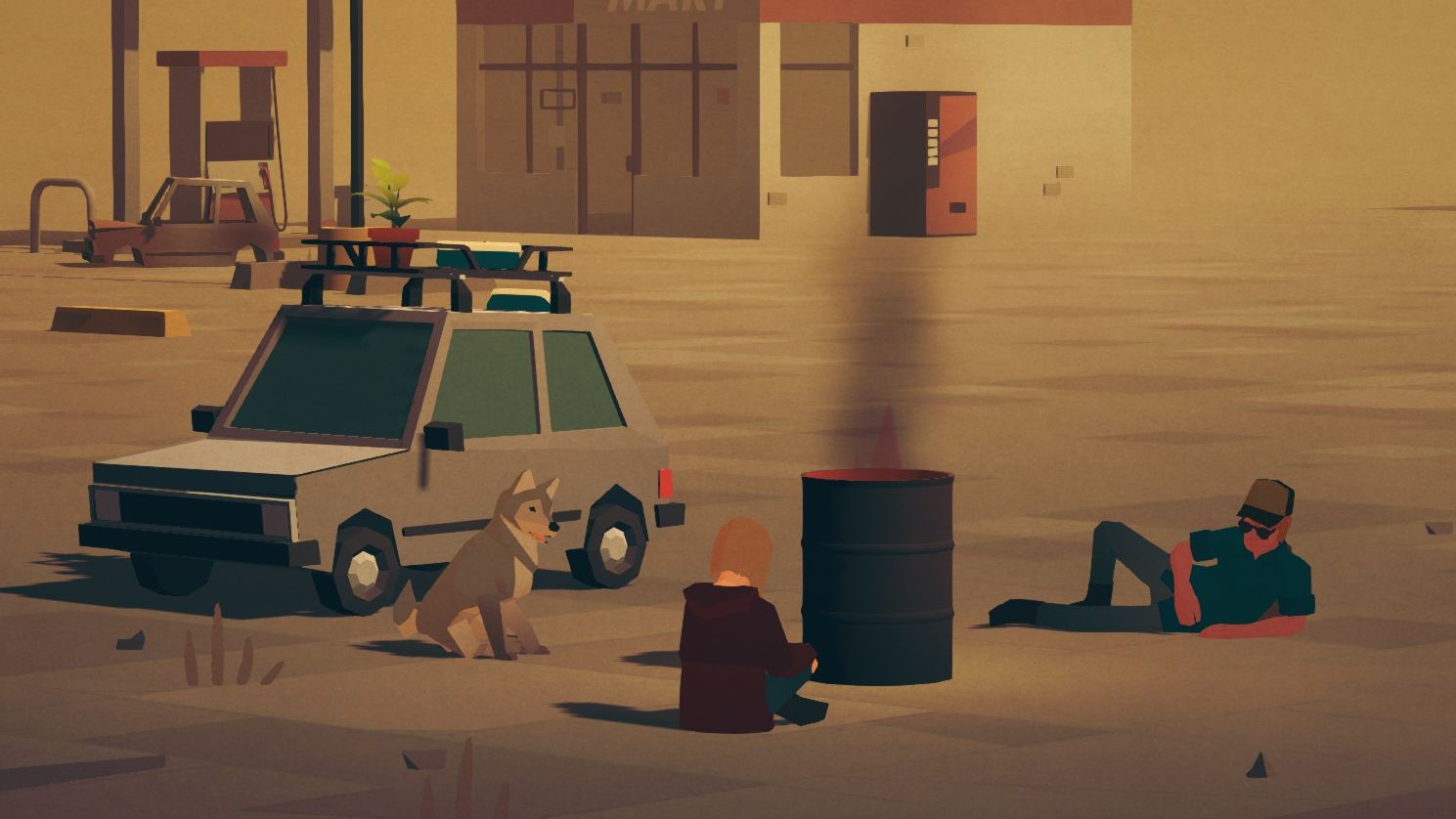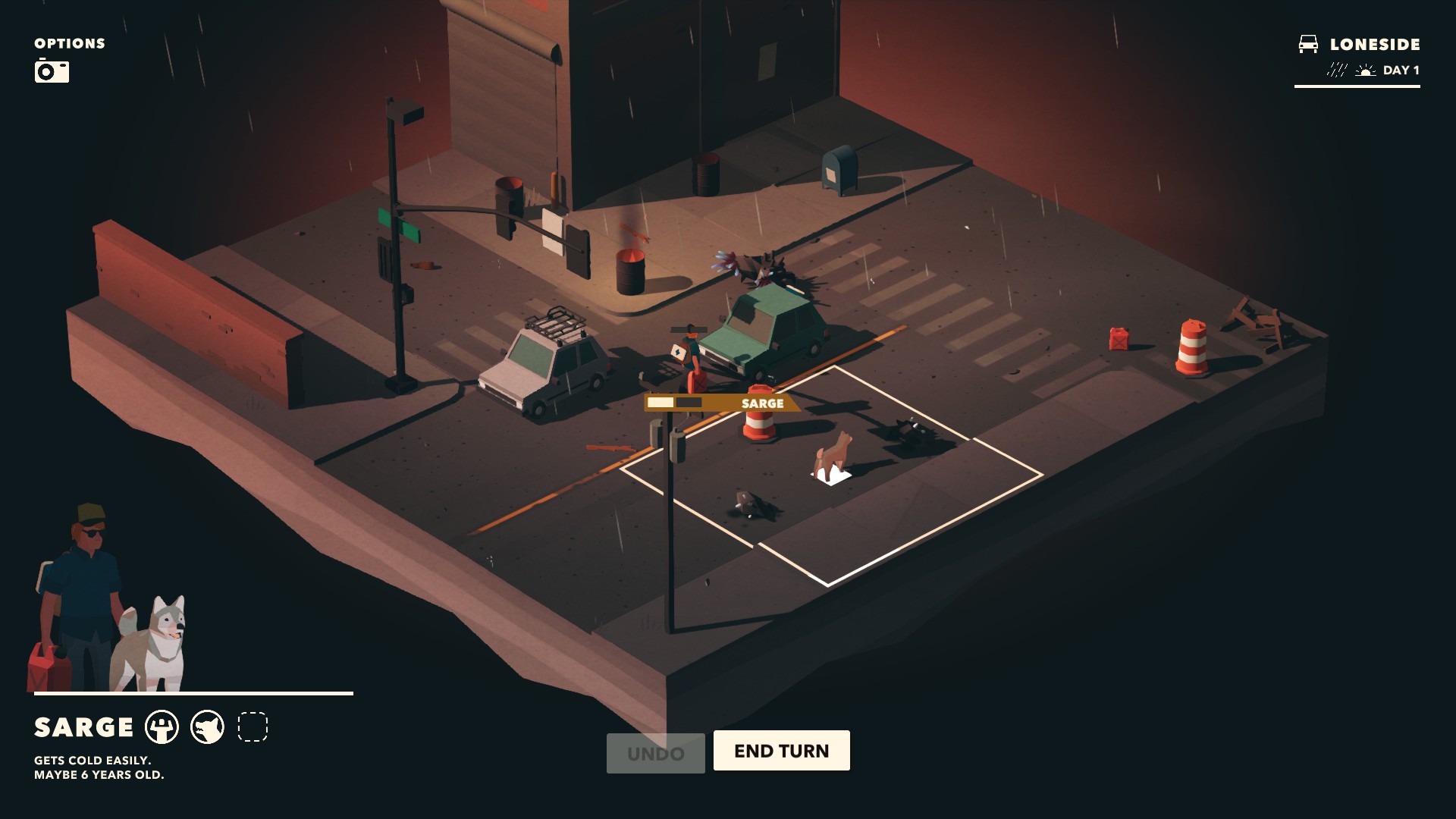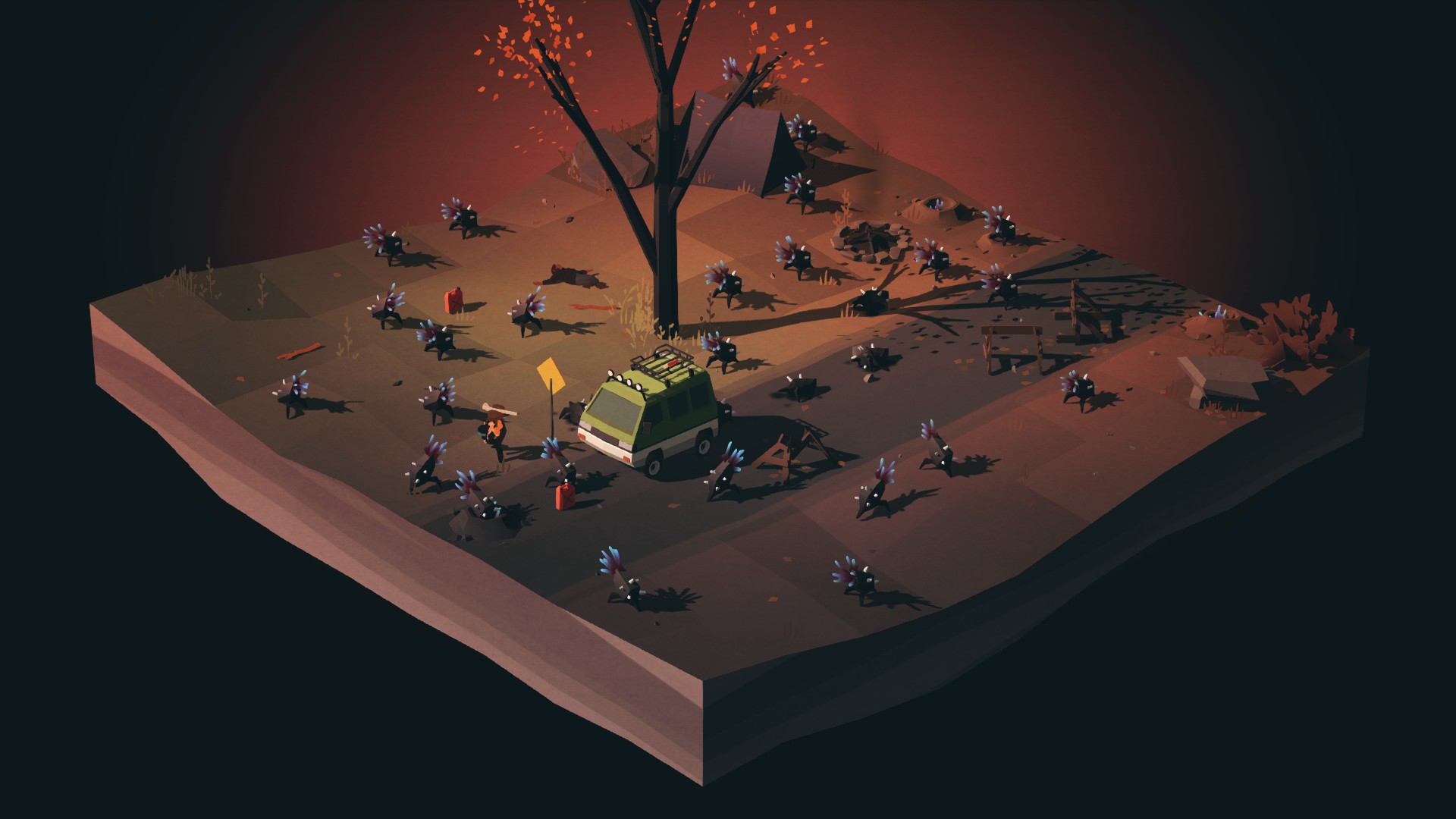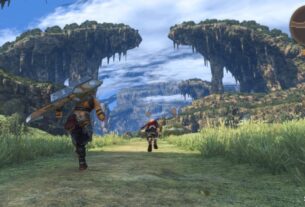
Expect to pay $25/£20
Developer Finji
Publisher Finji
Reviewed on 64-Bit Windows 7, Nvidia GeForce GTX-970, Intel i7-4790K, 16GB RAM
Multiplayer No
Link Official site
How much abject misery do you capture in your post-apocalyptic game? It’s a tough one. Is yours a nightmare disguised as an action movie as in Mad Max? Or is it the grinding, soul crushing despair of The Road? Games have landed all over the spectrum but I’ve never played anything that sits concurrently at so many different points on that spectrum as Overland. Pleasant visuals hide one of the bleakest gaming experiences I’ve had in some time.
It is a turn-based game in which you guide survivors through scenario after scenario in a road trip across America, gathering supplies but focused on finding fuel to get a car and keep it running for as long as you can. The presentation of these scenarios is lovely; bite-size squares present each scene as a little interactive diorama. There’s even a quickly accessible photo mode to make the most of it, and I couldn’t help but take dozens of screenshots. The minimalistic visuals conjure up the pleasant, gentle vibes of Untitled Goose Game and the still-unreleased Ooblets. Overland is not like those games. It might look like a charming indie on the outside but beneath is the dark cruel heart of a Cormac McCarthy.
Your foes are alien creatures that are drawn to sound. Inevitably, lugging around petrol and stuff creates noise, and the longer you’re in a scenario more creatures pop up from underground until the entire screen is filled with them and you can’t move. Occasionally it’s a harsh but compelling time limit that forces you to make choices about what you really need. In those moments the game comes alive, as you wrestle between swiping an upgrade for your car or a med kit for one of your wounded survivors.
It’s rare that scenarios come together like this. Instead the buildup to being overwhelmed is often too swift. Either you already made the smart choice at the outset of the level, or you die. The hazy middle ground where you stew in indecision is barely existent thanks to tiny scenarios, maps that require no more than a few turns to traverse and enemies which grow in number too quickly to be countered or controlled.
That last part is the real stinger, and often makes the game feel miserable. Harsh odds and punishing difficulty aren’t unfamiliar in tactical turn-based games. X-COM thrives on this but X-COM also gives you a lot of tools to deal with these obstacles. Overland gives you so little and worse, due to the randomly generated nature of it, you’ve so little control over what you have and what you don’t.

One run will see you start with a makeshift shield, a healthy dog, and a great car. The next will see you with next to nothing and less than that after a couple of bad scenarios. This lead to me constantly restarting campaigns to see if I couldn’t roll a better start for myself. It’s a tedious affair that deprives you of any attachment to your characters. They’re nothing but hopeless meat puppets destined to expire within a day. “But Sam!” you cry. “There are dogs and you can pet them!”. It’s true and they’re adorable but I hope you enjoy watching them die by the dozen because Overland shows man’s best friend no mercy.
The game’s only difficulty options give you the chance to restart an individual scenario—largely pointless since you’re frequently doomed by random generation, seldom by your own actions—or let you increase the difficulty by adding a hard time limit.
Between these brutal encounters you are on the road. Your characters camp at peaceful spots but it’s relatively brief. Frustratingly, Overland doesn’t let you use this downtime to manage your resources. Why can’t I heal wounded survivors while we’re resting? Why can’t I fuel up the car with the gas I’ve collected? This might be a forgivable oversight if every individual turn wasn’t so precious. Losing a scenario because I have to spend time patching up my team is frustrating.

For a game about driving across America there’s little sense of a journey either. A road trip composed solely of short stops does little to give you the sense you’re going anywhere. Perhaps that’s the intention. Overland may well want to exaggerate its unforgiving atmosphere with a sense of a journey where you’re getting nowhere. For me? I was bored. It’s wearying to roll up to the next encounter and know I’m doomed at a glance. New options and mechanics slowly make themselves known but they do little to change the overall trajectory of the experience.
But hey, sometimes the post-apocalypse is just like that: hardship without reward. Yet even the bleakest works of apocalypse fiction use misery to examine people, to help us understand the fundamentals of our condition. Overland, with its randomly generated and entirely interchangeable humans has no insight to offer. Well, except watching dogs die repeatedly really will make you dislike a game.
Read our review policy
A post apocalyptic road trip with more stops than starts.



